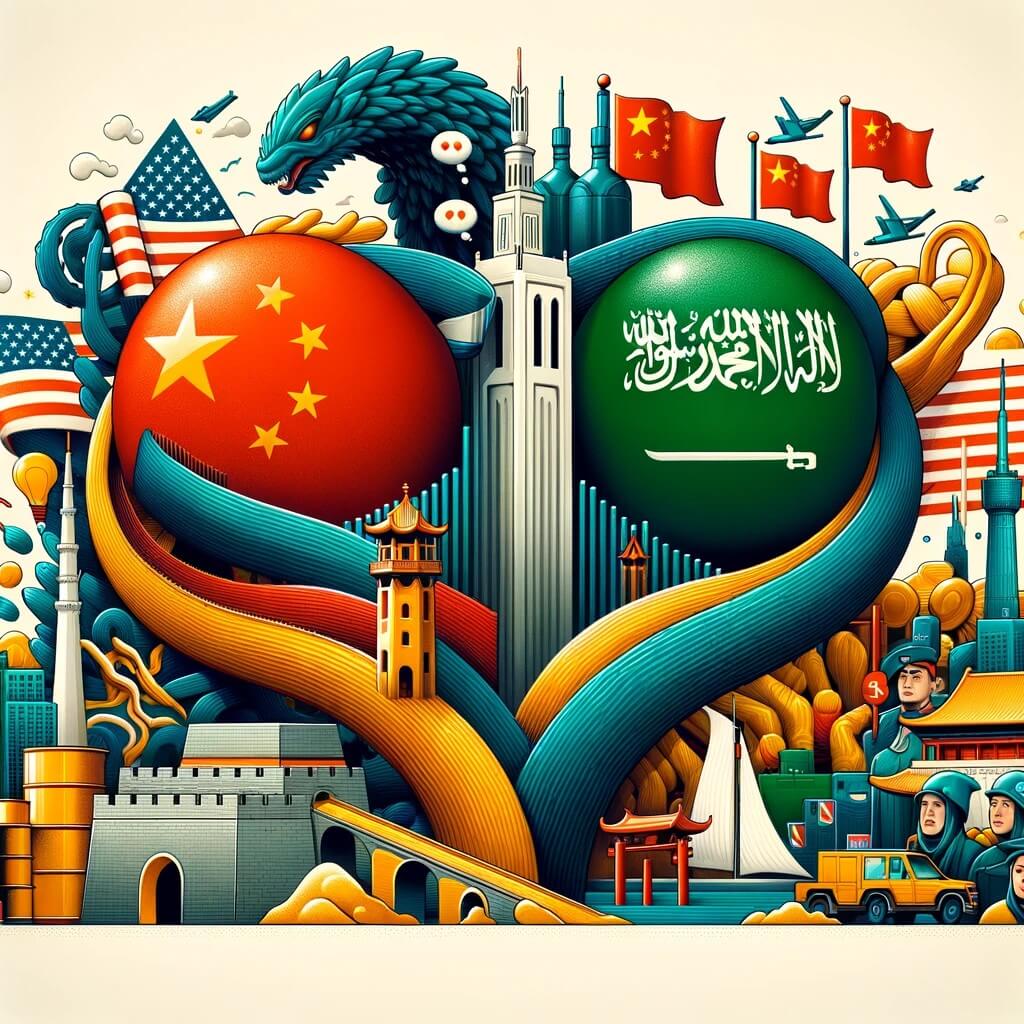The global stage is witnessing a fascinating shift as China and Saudi Arabia knit closer ties, particularly highlighted by recent events in Hong Kong. This burgeoning relationship, underscored by Saudi Arabia’s Future Investment Initiative Institute hosting its first Asia conference in Hong Kong, paints a new geopolitical landscape.
The implications of this alliance for the United States are profound, especially considering the traditional U.S.-Saudi alignment and the burgeoning superpower status of China.
Strengthening Economic and Political Ties
China’s Vice-Premier He Lifeng’s recent call for Hong Kong to build closer ties with the Middle East is coming to fruition with the ongoing conference in the city.
This event, a brainchild of Saudi Arabia’s $700 billion Public Investment Fund, is not just a meeting of minds but a clear signal of the deepening relationship between China and Saudi Arabia.
The conference, held in the wake of Chinese President Xi Jinping’s ‘epoch-making milestone’ visit to Saudi Arabia, is more than a gathering – it’s a testament to their growing economic camaraderie.
The strategic partnership is multifaceted, encompassing mutual investments and shared ambitions. Saudi Arabia, with its eye on expansive domestic infrastructure projects and vision for futuristic cities like Neom, looks to China as a critical investment partner.
As Riyadh prepares for grand events like the 2030 World Expo and the 2034 World Cup, the question of funding these ambitious projects looms large, and China emerges as a key player in this scenario.
Moreover, the relationship extends beyond mere monetary exchanges. The Hong Kong Exchanges and Clearing’s (HKEX) cooperation with Saudi Arabia’s Tadawul and the launch of an exchange-traded fund tracking Gulf equities are concrete examples of this burgeoning partnership.
There’s a strategic push to attract Middle Eastern companies to Hong Kong’s stock market, further intertwining China’s and Saudi Arabia’s economic destinies.
Geopolitical Implications and the U.S. Perspective
This alliance is reshaping the geopolitical chessboard. The growing intimacy between China and Saudi Arabia challenges the long-established dominance of the United States in the Middle East.
The kingdom’s pivot towards Beijing and Moscow, notably China’s pivotal role in Saudi Arabia and Iran’s diplomatic thaw, indicates Riyadh’s strategy to diversify its alliances.
China’s increasing footprint in the Middle East, particularly in Saudi Arabia, is not just about economics; it’s a strategic maneuver.
Saudi Arabia’s exploration of technology transfer with China, including plans for Chinese electric vehicle companies to establish manufacturing bases in the kingdom, highlights a shared vision that transcends traditional energy partnerships.
This collaboration, however, brings its own set of challenges, particularly in the realm of artificial intelligence and the implications for U.S.-Saudi technology exchanges.
The United States finds itself in a complex position as one of its traditional allies in the Middle East gravitates towards a rival superpower. This new alliance could provide Saudi Arabia with leverage in its negotiations with the U.S. and Europe, altering the dynamics of long-standing relationships.
The U.S. must navigate this shifting landscape carefully, balancing its interests and maintaining its influence in a region that is increasingly looking towards the East for partnerships and progress.
The strengthening ties between China and Saudi Arabia signal a significant shift in global geopolitics, with direct implications for the United States.
As China continues to assert its influence on the world stage, and Saudi Arabia diversifies its global partnerships, the U.S. faces the challenge of redefining its role and strategies in a rapidly evolving international arena.
This evolving relationship is not just about economics; it’s a strategic realignment that will shape the future of international diplomacy, trade, and power balance.





